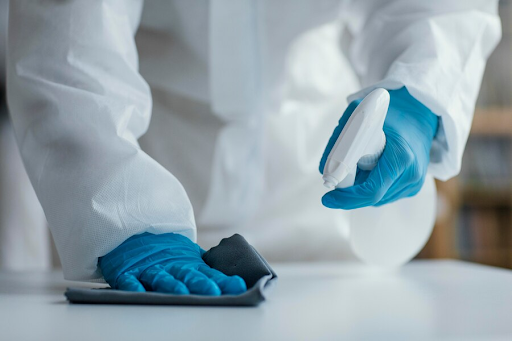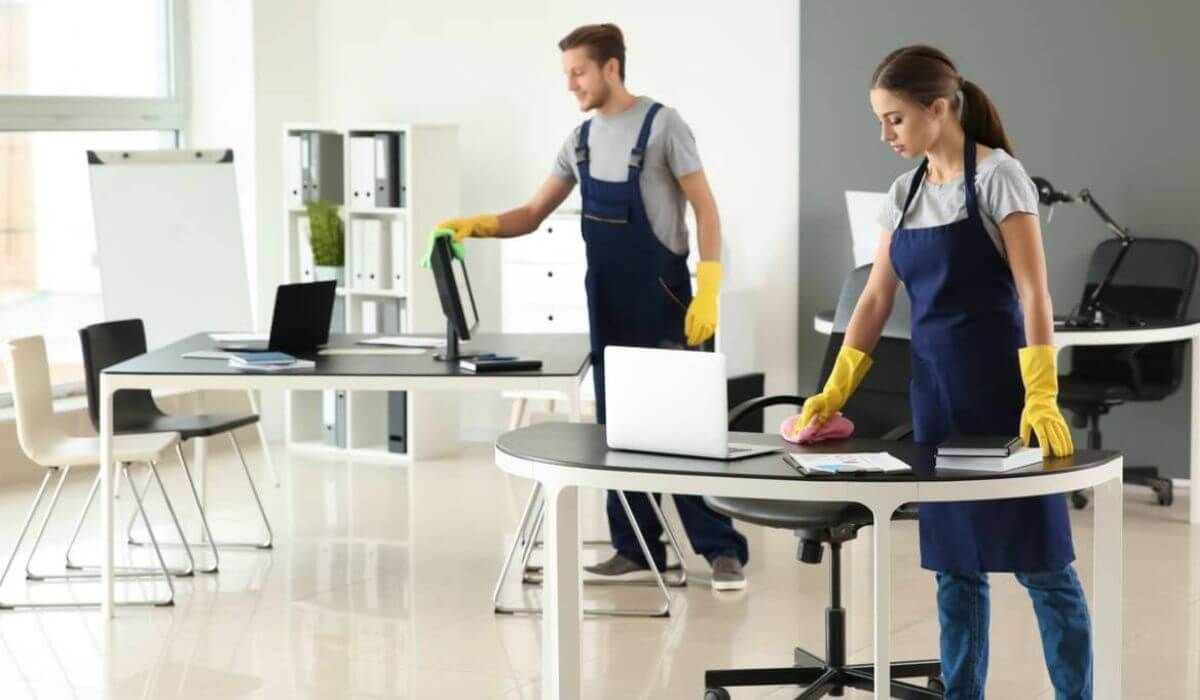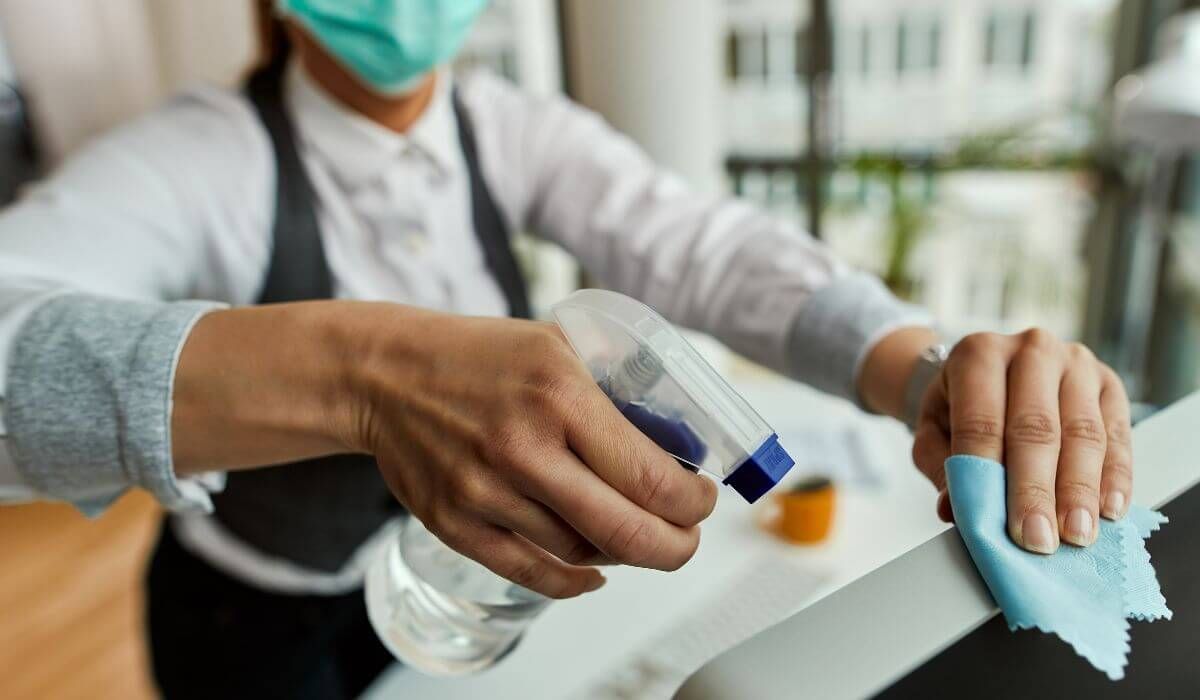Medical Cleaning Sydney: The Crucial Role in Sydney Hospitals
Maintaining a sterile environment in hospitals is not just important—it's absolutely critical. In a setting where patients' health and lives are at stake, the cleanliness of the facility directly impacts patient outcomes, infection control, and overall healthcare quality. Unlike other types of buildings, hospitals in
Sydney face unique challenges that demand specialized cleaning services. These services ensure that every corner of the facility meets stringent health and safety standards, helping to protect both patients and staff from potential hazards.
Why Specialized Medical Cleaning is Essential in Sydney Hospitals
Hospitals are environments where cleanliness is synonymous with safety. The complexity and scale of healthcare facilities require cleaning protocols far beyond what is typically needed for commercial or residential spaces.
Understanding the Difference Between Regular and Medical Cleaning
Medical cleaning differs significantly from regular cleaning in terms of the procedures, equipment, and chemicals used.
Hospital-grade cleaning involves meticulous sanitation practices designed to eliminate pathogens, reduce the risk of healthcare-associated infections (HAIs), and ensure a safe environment for patients with compromised immune systems.
Healthcare cleaning standards mandate the use of disinfectants and sterilization techniques that are specifically effective against bacteria, viruses, and other harmful microorganisms commonly found in medical settings.
Impact on Patient Safety and Infection Control
Effective
infection prevention is at the heart of medical cleaning. In hospitals, the risk of spreading infections like MRSA, C. difficile, and COVID-19 is high, making rigorous cleaning protocols essential. Proper
hospital hygiene not only protects patients but also reduces the burden on healthcare systems by preventing the spread of infections that could lead to longer hospital stays or more intensive care requirements. By maintaining high standards of cleanliness, hospitals can significantly lower the incidence of
healthcare-associated infections, ultimately saving lives and improving patient outcomes.
Regulatory Requirements for Medical Cleaning in Sydney
In Australia, healthcare facilities are held to strict regulatory standards when it comes to cleanliness and infection control. Hospitals in
Sydney must comply with these regulations to ensure they provide a safe environment for patients and staff.
Meeting Australian Health Standards in Hospitals
The Australian Commission on Safety and Quality in Health Care (ACSQHC) sets out comprehensive guidelines for
hospital cleaning compliance. These standards cover everything from daily cleaning routines to the handling of medical waste and the use of approved disinfectants. Meeting these standards is not just about maintaining appearances; it's about ensuring that every surface, instrument, and area within the hospital is free from contamination, thus protecting vulnerable patients from infection.
Consequences of Non-Compliance in Medical Cleaning
Failure to comply with Australian healthcare regulations can have serious consequences for hospitals. Non-compliance can lead to
regulatory penalties, loss of accreditation, and even closure in extreme cases. Additionally, hospitals that do not adhere to stringent cleaning protocols may face higher rates of patient infections, which can result in reputational damage and increased scrutiny from regulatory bodies. Regular
healthcare cleaning audits are conducted to ensure that hospitals are upholding these critical standards, making it imperative that they partner with experienced and compliant cleaning service providers.
Components of Effective Medical Cleaning Services
High-Touch Area Disinfection and Sterilization
Certain areas in hospitals, known as
high-touch areas, such as door handles, bed rails, and light switches, are more likely to harbor harmful pathogens due to frequent contact. Disinfecting these areas is crucial to prevent the spread of infections.
Disinfection protocols are carefully followed to ensure that these surfaces are not just cleaned but also sanitized to a hospital-grade level. In areas like operating rooms and intensive care units,
sterilization techniques are employed to eliminate all forms of microbial life, providing an extra layer of protection for patients.
Use of Specialized Equipment and Cleaning Agents
Medical cleaning requires the use of
medical-grade cleaning supplies and equipment that are specifically designed to meet the rigorous demands of
healthcare environments. These include advanced disinfectants that are effective against a broad spectrum of pathogens, as well as equipment like HEPA-filtered vacuum cleaners that remove airborne contaminants. The use of such specialized tools and
advanced cleaning technology ensures that even the most challenging cleaning tasks are handled efficiently and effectively, leaving no room for error.
Selecting the Right Medical Cleaning Service Provider in Sydney
Choosing the right cleaning service provider is crucial for hospitals aiming to maintain high standards of cleanliness and compliance with healthcare regulations.
Key Qualities to Look for in a Medical Cleaning Company
When selecting a
medical cleaning service in
Sydney, it's important to look for providers that offer
expertise in healthcare cleaning. This means they should have a deep understanding of the specific needs and challenges of hospital environments, as well as the ability to implement custom cleaning solutions. Other key qualities to consider include the use of approved cleaning agents, adherence to safety protocols, and a proven track record of delivering high-quality services.
Evaluating the Experience and Credentials of Cleaning Teams
The experience and credentials of the cleaning team are equally important. Look for companies that employ
trained cleaning staff who have received certification in medical cleaning. These professionals should be knowledgeable about the latest industry standards and best practices, ensuring that they can deliver a service that meets the highest levels of safety and hygiene.
Experienced cleaning providers are also more likely to have established processes in place for managing the complex and dynamic environment of a hospital, making them a reliable choice for maintaining cleanliness and compliance.
Conclusion
In the context of healthcare, where lives are at stake, the importance of specialized medical cleaning cannot be overstated. Ensuring that hospitals in
Sydney are kept clean and sterile is essential for protecting patient safety, complying with healthcare regulations, and maintaining the overall quality of care. By partnering with professional cleaning service providers who have the necessary expertise and experience, hospitals can achieve these goals and provide a safe environment for everyone who walks through their doors.
FAQs About Medical Cleaning
What makes medical cleaning different from regular cleaning?
Medical cleaning requires stringent hygiene protocols, specialized equipment, and adherence to healthcare regulations, all of which go beyond standard cleaning practices to ensure a sterile environment.
Why is hospital cleaning so crucial in preventing infections?
Effective cleaning practices are vital in preventing healthcare-associated infections (HAIs), which can spread rapidly in hospital settings and pose serious risks to patient health.
What are the consequences of poor hospital cleaning practices?
Poor cleaning practices can lead to non-compliance with regulatory standards, increased infection rates, and potential penalties, all of which can harm a hospital's reputation and patient safety.
How often should high-risk areas in hospitals be cleaned?
High-risk areas like operating rooms, patient rooms, and common areas should be cleaned frequently, with some areas requiring multiple cleanings per day to maintain a sterile environment.
What qualifications should a medical cleaning service provider have?
A medical cleaning service provider should have the necessary certifications, extensive experience, and expertise in healthcare cleaning to ensure they meet the rigorous demands of hospital environments.



